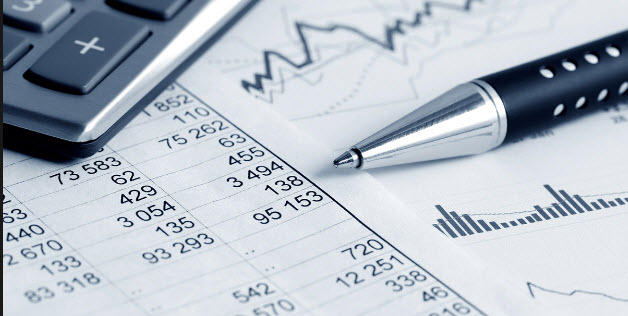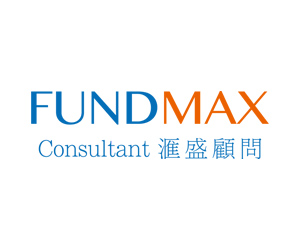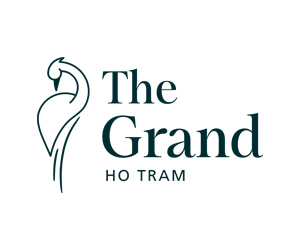Want to be in the loop?
subscribe to
our notification
Business News
VIETNAM'S ECONOMIC GROWTH EXPECTED TO PICK UP IN 2024
Vietnam’s economy is expected to post 6 per cent growth in 2024, up from 5.1 per cent growth in 2023, on the back of improving external demand, a pickup in domestic demand, and robust foreign direct investment (FDI) inflows, according to a report by the ASEAN+3 Macroeconomic Research Office (AMRO) released on April 9.
The 2023 Annual Consultation Report on Vietnam, published by AMRO, noted that after weakening in the first half of 2023, the Vietnamese economy gathered momentum in the second half of the year. Vietnam's economic growth is expected to pick up moderately in 2024. External demand is projected to increase, attributed to stronger US appetite for retail goods, the recovery of the global semiconductor market, and a rise in economic activities in the EU. Furthermore, an upsurge in tourist arrivals is expected to bolster consumption.
Inflationary pressure is expected to remain under control, owing to softening domestic demand, declining oil prices, and sufficient domestic food production. Consumer price inflation is expected to increase to 3.6 per cent in 2024. Continued strong FDI inflows, a moderate export recovery, and an improvement of tourist arrivals will continue to support the balance of payments, contributing to a further accumulation of foreign reserves.
The Vietnamese authorities have employed fiscal policy judiciously since early 2022 to support growth. The government rolled out several measures, including temporary tax and rent deferrals, lowering of value added tax, interest rate support, and loan forbearance policy. Due to the launch of stimulus measures to support growth, the budget deficit is estimated to be around 3.7 per cent of GDP in 2023, flattening from 3.6 per cent in 2022.
As inflationary pressure was muted, the State Bank of Vietnam (SBV) cut operating rates four times in 2023 to stimulate the economy, while keeping the annual credit growth target at the pandemic level of 14.5 per cent. Despite these accommodative monetary conditions, weak economic activity dampened credit demand in 2023.
According to AMRO, risks to the growth outlook are tilted towards the downside. Key downside risks stem from a recession in the EU or US, a slower-than-expected economic recovery in China, and the prolonged sluggishness in Vietnam’s housing market, which could exacerbate financial distress among property developers and weigh heavily on related sectors.
Risks in the financial sector primarily arise from the deterioration of asset quality. The non-performing loan ratio, particularly in retail, small- and medium-sized enterprises (SMEs), and real estate related loans, has increased due to weak economic conditions and the sluggish housing market. The forbearance policy could mask weaker underlying credit quality.
"From a longer-term perspective, Vietnam’s growth potential faces a confluence of structural challenges, including the slow development of a manufacturing ecosystem, a shortage of skilled labour, and rapid population ageing. Moreover, Vietnam is one of the most vulnerable economies in Asia to climate change due to the concentration of economic activities along its long and densely populated coastline, as well as rapid urbanisation and industrialisation," said AMRO.
Considering the uncertainty over its growth prospects, Vietnam should employ a policy mix which supports growth while maintaining financial stability. Fiscal policy should play a leading role in bolstering the economy, with support measures to be recalibrated for greater effectiveness and more targeted to vulnerable groups.
Maintaining the accommodative monetary policy stance would ease the financial burden on SMEs and heavily indebted households. Macro prudential regulations, such as lowering loan concentration limits or loan-to-value ratios, should be put in place to preemptively contain risks arising from the housing market and curb speculative demand. Banks’ capital and liquidity buffers should be strengthened amid rising risks.
Concerted efforts should be made to address structural challenges and promote inclusive and sustainable development. Medium-term fiscal policy should aim to improve tax administration, broaden the tax base, enhance spending efficiency, and strengthen social protection.
An improvement of the monetary policy framework would strengthen its role in supporting the economy. The credit growth target should be phased out over time, when conditions permit and with an appropriate roadmap, to pave the way for a more market-based policy framework.
Regulatory reforms in the financial system should be pursued by expediting mergers and acquisitions between the stronger and weaker banks, improving the banking resolution framework, strengthening rules on corporate governance, financial consumer protection, and information disclosure, as well as enhancing financial literacy. The expansion of credit guarantee schemes could help promote SMEs’ access to financing.
The financial distress in the housing market also demonstrates the importance of addressing legal bottlenecks and data gaps pertaining to real estate and construction. In view of the shortage of skilled labour, greater efforts and financial support should be directed towards raising the availability and quality of vocational training and educational programmes.
To enhance the country’s resilience to climate change, both mitigation and adaptation measures will be needed to minimise the risks associated with the transition to a low-carbon economy.
Source: VIR
Related News

TOTAL FDI REGISTERED IN VIETNAM HITS 31.4 BILLION USD IN JANUARY-NOVEMBER
As of November 30, 2024, the total newly registered capital, adjusted capital, and capital contributions or share purchases by foreign investors in Vietnam reached nearly 31.4 billion USD, up 1% increase compared to the same period last year.

FOUR MAIN DRIVERS OF VIETNAMESE STOCK MARKET IN 2025
Positive prospects of a stable manufacturing in 2025 are supported by supply chain diversification benefits from the “China +1” strategy, and Vietnam will continue to attract FDI inflows in the coming time.

FORECAST UPBEAT FOR BANKING INDUSTRY IN 2025
They explained that the real estate market has gradually recovered, while the Government has also been promoting public investment. These factors will help stimulate an increase in credit demand, which will support banks' lending yields in the second half of 2025.

FOOTWEAR INDUSTRY SET TO GAIN $27 BILLION IN EXPORT THIS YEAR
Việt Nam's footwear and leather industry is poised to achieve US$26-27 billion in export in 2024, marking a $3 billion increase from the previous year, as they country has well capitalised on the signed free trade agreements to bolster shipment, according to the Vietnam Leather, Footwear and Handbag Association (Lefaso).

TEXTILE EXPORT TURNOVER HITS 44 BILLION USD IN 2024
According to the Vietnam Textile and Apparel Association, Vietnam's textile and garment industry has fulfilled its 44-billion-USD export turnover target in 2024. The US remains the largest export market with an estimated export turnover of 16.71 billion USD, up 12.33% and accounting for 37.98% of the total turnover, followed by Japan, EU, the Republic of Korea, China, and ASEAN.

TRANSPORT MINISTRY EYES 70 KEY INFRASTRUCTURE PROJECTS IN 2025
The Ministry of Transport today, December 30, announced that it would advance 70 infrastructure projects in 2025, including 19 new starts and the completion of 51 existing ones. The announcement came at a conference reviewing the ministry’s 2024 performance and outlining its 2025 priorities.

































